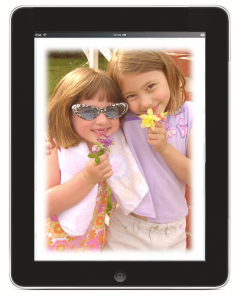Talking to Our Children About Racism & Diversity
/By Salina
On a recent trip to get my 5 year-old daughter her first pair of glasses, we came away with a little something we didn’t ask for - something which has undoubtedly left an imprint on my 5 and 7 year-old children’s self-image and identity. Something which has happened before, many times, and which will likely happen again.
One of the employees took a good look at my brown-skinned, curly-haired children, next to my blond hair and pale skin, and decided it was her right to know exactly how this happened.
She blurted out “Oh, they are so beautiful! What is their background?” as if we were looking at a pair of pedigree dogs.
I wish I could say this was the first such experience for my children, but it was not. The relentless and pointless questions we receive imprint themselves on the very fabric of my children’s identities. These experiences tell my children that they must be different; worthy of comment after comment. White kids with white parents don’t get asked about their background, they don’t receive endless comments about how difficult it must be to manage their hair, or that their father must be “dark,” or assumptions that they are not from Canada. What makes people feel they have the right to say such things to and about my children?
I know that most people don’t mean to cause harm with their ignorant questions and comments, but the result is the same, intended or not. The result is that my children feel different, singled out. The next time you feel yourself burning with curiosity about someone’s ethnic background, I suggest you stop and ask yourself this : How would you feel if you were asked to explain your very existence to complete strangers on a daily basis, just to satisfy their curiosity?
That said, I'm not arguing that we should be colour blind (or practice what we call "whitewashing" - ignoring the existence of racism and our own role in perpetuating social injustice.) In fact, most children are curious and open about differences between people. I believe it's up to parents to open the line of communication on racial diversity without making assumptions or asking intrusive questions, so that they don’t grow up to be the eyeglass store employee in the above incident.
So how can we teach our kids to navigate our racially diverse society?
We need to teach kids to talk about race and culture in a positive way, rather than avoiding it like it’s a dirty little secret. If a friend has brown skin, it’s okay to describe him that way. Kids notice these things. My children often point out the colour of people’s skin and they are certainly aware that they have brown skin. If everybody avoided mentioning this fact around them, they would come to regard it as something shameful, something so bad that we don’t even talk about it.
- Help children understand race by normalizing it with exposure and lots of discussion; talk about race in a factual way, not an exotic way.
- Read books with as much diversity represented as possible
- Challenge and discuss stereotypes you and your children encounter in the media and elsewhere
- Have dolls of a variety of ethnic backgrounds
- Take your children to some of the many festivals and celebrations put on by various cultural communities within Ottawa
- Make friends outside of your racial group whenever the opportunity arises
- Avoid making assumptions about people based on appearance
- Teach kids the truth about Canada - which is that unless you are First Nations, your ancestors were immigrants at some point; this country does not belong to one group more than another
- Teach your children to look at the world with an open mind and to treat others as they would like to be treated
We have enormous power as parents to shape the next generation; let’s use our power to create a better future for all of our children.
Salina Sunderland is the mother of three children ranging in age from 6 to 21. She is also a private home daycare provider and cares for five additional children on a daily basis. She is passionate about celebrating diversity, challenging stereotypes, and helping children build a strong foundation of respect and understanding. You can contact her at kangaroospouch@hotmail.com or check out her daycare website







 Before I ever had kids, I knew there was a chance I'd have a child with ASD because I have three families members who are all on the spectrum. Autism has brought a lot of unexpected challenges into our life, but I wouldn't wish it away for even a minute. My son wouldn't be the person he is if he didn't have autism and I adore my sweet little boy.
Before I ever had kids, I knew there was a chance I'd have a child with ASD because I have three families members who are all on the spectrum. Autism has brought a lot of unexpected challenges into our life, but I wouldn't wish it away for even a minute. My son wouldn't be the person he is if he didn't have autism and I adore my sweet little boy. I read an article the other day talking about how kids today have too much too soon and are too plugged in. The article advocated simplifying your kids’ lives, ridding them of stuff and eliminating their screen time.
I admit I’m a little biased. I work in social media. I will also admit that I’m a helicopter mom who feels more comfortable knowing where my kids are and knowing that they can get in touch with me if they need to. But I also really believe that if parents limit the access their child has to the technology out there, they will be at a real disadvantage as they grow.
I read an article the other day talking about how kids today have too much too soon and are too plugged in. The article advocated simplifying your kids’ lives, ridding them of stuff and eliminating their screen time.
I admit I’m a little biased. I work in social media. I will also admit that I’m a helicopter mom who feels more comfortable knowing where my kids are and knowing that they can get in touch with me if they need to. But I also really believe that if parents limit the access their child has to the technology out there, they will be at a real disadvantage as they grow.


